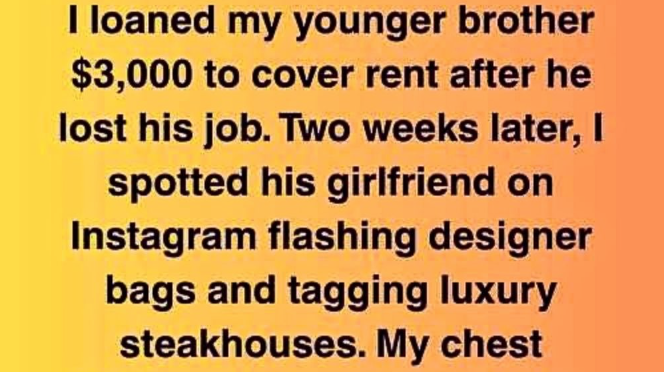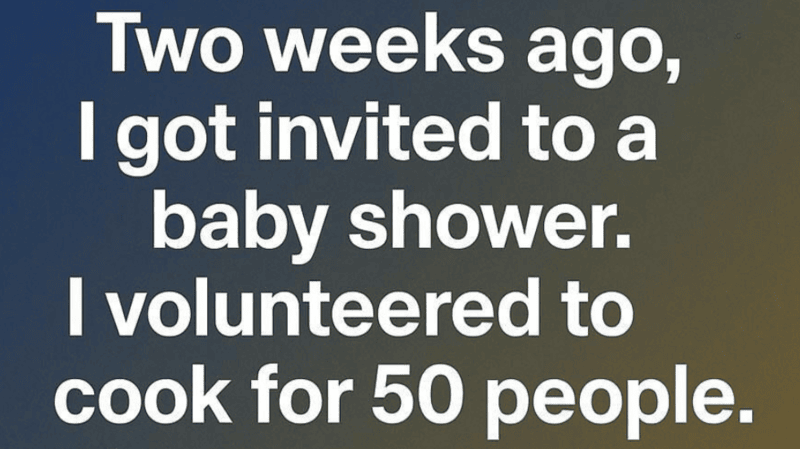When my younger brother, Darren, lost his job, I didn’t hesitate to support him. I sent him $3,000 to cover groceries and rent, hoping to provide a cushion while he found his footing again. That’s what you do for family, isn’t it? Yet, I learned through experience that there’s a fine line between helping someone and enabling their behavior, and it’s not always clear until the consequences unfold.
Two weeks after sending the money, I saw Rita, Darren’s girlfriend, posting photos from trendy restaurants and showing off pricey designer handbags. I tried to give Darren the benefit of the doubt, convincing myself there was a reasonable explanation. Then I returned home to find my television missing. My emergency cash, a pair of sneakers, and my gaming system, all kept in the back of my closet, were gone too. The only person with a key was Darren.
I called him, but the phone went straight to voicemail. I texted, “Did you take my stuff?” No response. The next morning, I drove to our mom’s house, where Darren had been staying. He was sprawled on the couch, acting as if everything was normal. “Where are my things?” I asked. He didn’t flinch. “I pawned them,” he said casually. “Relax, I’ll get them back when I’m working again.” I was stunned. “You stole from me after I gave you money?”
“You live alone,” he replied. “No kids. You can afford it.” Mom tried to smooth things over, suggesting Darren needed more time. That’s when it hit me—this wasn’t love or support; it was enabling. That afternoon, I filed a police report. My hand trembled as I signed the paperwork, but I knew protecting myself was necessary.
Two days later, Darren called, furious. “You turned me in to the police? That’s cold.” I responded, “No, stealing from your own brother is cold.” The TV was gone for good, but I managed to recover some items from the pawn shop, changed my locks, and blocked his number.
A few weeks later, a woman named Marissa contacted me. She said Darren had scammed her cousin, taking money while spinning tales of success. Then Mom called to tell me Darren had been arrested for internet fraud. He was finally facing consequences. Mom urged me to visit him, saying he needed help. I told her he needed to face himself, not more support, at that moment.
In January, Darren received probation and mandatory rehabilitation. A few weeks later, I ran into him at the grocery store. He seemed more grounded, more aware. He handed me a repayment plan, promising $100 every two weeks. I accepted it, not for the money, but because he was finally owning his actions.
Eight months later, Darren is still repaying me, working at a warehouse, attending treatment, and slowly rebuilding our relationship. I invited him over for dinner, and we had a real conversation. “Do you still think I’m a failure?” he asked. “No,” I said, “because you’ve stopped pointing fingers at everyone else.”
The hardest lesson I’ve learned is that kindness can sometimes enable harmful behavior. Setting boundaries—reporting him, cutting contact—was the most loving choice I could make, not for him, but for myself. I realized love doesn’t mean sacrificing your peace, nor does it mean carrying someone else’s burdens. Sometimes, love means stepping back and letting someone face their own reflection.




